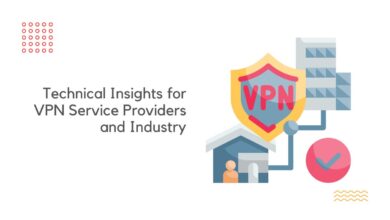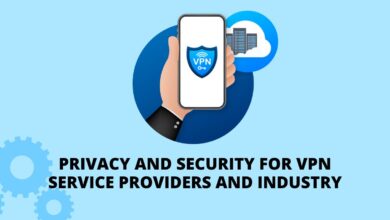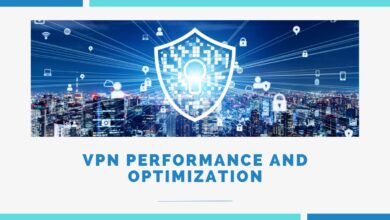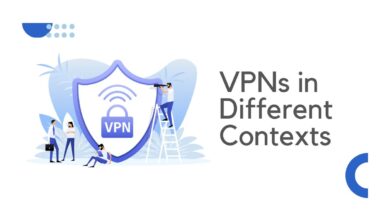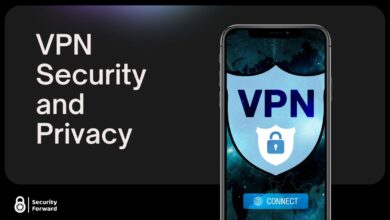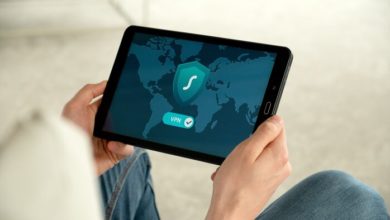Legal and Ethical Aspects of VPN Use
KEY TAKEAWAYS
The average download speed for tested VPNs is 234.45 Mbps, with IPVanish being the fastest (1.89 Mbps download speed).[1]
NordVPN was ranked the best VPN service in 2022, receiving a 4.8 out of 5-star review ranking.[2]
Choosing the right VPN service requires considering not only performance and connectivity but also the legal and ethical implications, along with the responsibilities of VPN providers.
In today’s interconnected world, where data breaches and online surveillance are common concerns, the importance of Virtual Private Networks (VPNs) cannot be overstated. VPNs offer a secure and private way to browse the internet, but choosing the right VPN service goes beyond just looking for performance and connectivity.
It’s essential to consider the legal and ethical implications of using a VPN, as well as the responsibilities of VPN providers. This comprehensive guide aims to provide you with the necessary information to make an informed decision when selecting a VPN service.
VPNs and the Law
Understanding the legal framework surrounding VPN use is crucial for ensuring compliance and making informed decisions about your online privacy and security.
Legal Implications of Using a VPN
The legality of VPN usage largely depends on your geographical location and the purpose of your use. In most democratic countries, using a VPN for privacy, security, or managing geographically diverse business operations is perfectly legal. However, the situation becomes complex when VPNs are used for activities that might be deemed illegal, such as accessing pirated content or engaging in unlawful transactions.
It’s crucial to understand that while a VPN provides privacy, it does not exempt users from obeying the law. Interestingly, the average download speed for tested VPNs is 234.45 Mbps, with IPVanish being the fastest at 1.89 Mbps download speed.[1]
Countries with VPN Bans and Restrictions
The legal landscape for VPNs varies globally. Countries like China, Russia, Iran, and North Korea have strict regulations or outright bans on the use of unapproved VPNs. These countries often require VPN services to register with the government, which could compromise the privacy they offer.
In contrast, countries like the United States, Canada, and most of the European Union have no such restrictions, allowing for the free use of VPN services. It’s interesting to note that amidst these varying legal contexts, NordVPN was ranked the best VPN service in 2022. It received a 4.8 out of 5-star review ranking, highlighting its effectiveness even in regions with diverse legal frameworks.[2] Before using a VPN, it’s advisable to check the specific laws and regulations in your country or the country you’re visiting.
Ethical Considerations
Exploring the ethical implications of VPN usage is essential to balance the right to privacy with responsible digital behavior and global internet norms.
The Ethics of Bypassing Censorship
VPNs are often used to bypass government censorship, providing access to a free and open internet. This capability raises significant ethical considerations. In countries with oppressive regimes, VPNs can be a tool for freedom of speech and accessing unbiased information.
However, this use can sometimes be in direct conflict with national laws. Users must consider the ethical implications of bypassing censorship, balancing their right to information against the potential risks involved.
The Responsibility of VPN Providers
VPN providers are at the forefront of internet privacy and security. Ethical VPN providers should adhere to a strict no-logs policy, ensuring that users’ activities are not monitored, recorded, or exposed.
They should also be transparent about their operations, including their jurisdiction, data retention policies, and the security protocols they use. When choosing a VPN provider, it’s crucial to select one that not only offers high performance and reliable connectivity but also demonstrates a strong commitment to user privacy and ethical practices.
FAQs
1. Is using a VPN to access geo-restricted content legal?
While it’s generally legal to use a VPN to access geo-restricted content, it can breach the terms of service of some platforms. This could lead to the suspension or termination of your account on those platforms.
2. Can a VPN guarantee anonymity?
VPNs significantly enhance privacy and anonymity online by encrypting your internet connection and masking your IP address. However, they do not provide 100% anonymity. Factors such as the VPN’s logging policy, the security of its servers, and the potential for IP leaks can affect the level of anonymity.
3. Are free VPNs safe to use?
Caution is advised when considering free VPNs. Many free VPN services may compromise your security by using weaker encryption or by tracking and selling your data to third parties. It’s generally recommended to opt for a reputable, paid VPN service that clearly states its privacy policy and security measures.
4. How do I choose a VPN provider?
When choosing a VPN provider, consider factors such as the provider’s reputation, privacy policy, the strength of encryption, server locations, speed, and customer support. Reading reviews and conducting thorough research can help you make an informed decision.
5. How does a VPN affect internet speed?
A VPN can sometimes slow down your internet speed due to encryption and the distance to the server you’re connected to. However, a high-quality VPN minimizes this impact, ensuring a balance between speed and security. Selecting a server closer to your location can also help maintain better speeds.
Conclusion
Choosing the right VPN involves assessing performance, connectivity, legal, and ethical aspects. A quality VPN ensures privacy and security, adheres to legal and ethical norms, and suits your needs while complying with laws. In digital security, making informed decisions is crucial for effective protection.
Read more about the legal and ethical considerations of VPNs from our blogs at Security Forward.
- McCann, M., & Hardy, A. “VPN Statistics And Trends In 2023.” Forbes, 14 Dec. 2023, https://www.forbes.com/advisor/business/vpn-statistics/
- DataProt. “VPN Statistics for 2023 – Keeping Your Browsing Habits Private.” DataProt, 4 Dec. 2023, https://dataprot.net/statistics/vpn-statistics/
